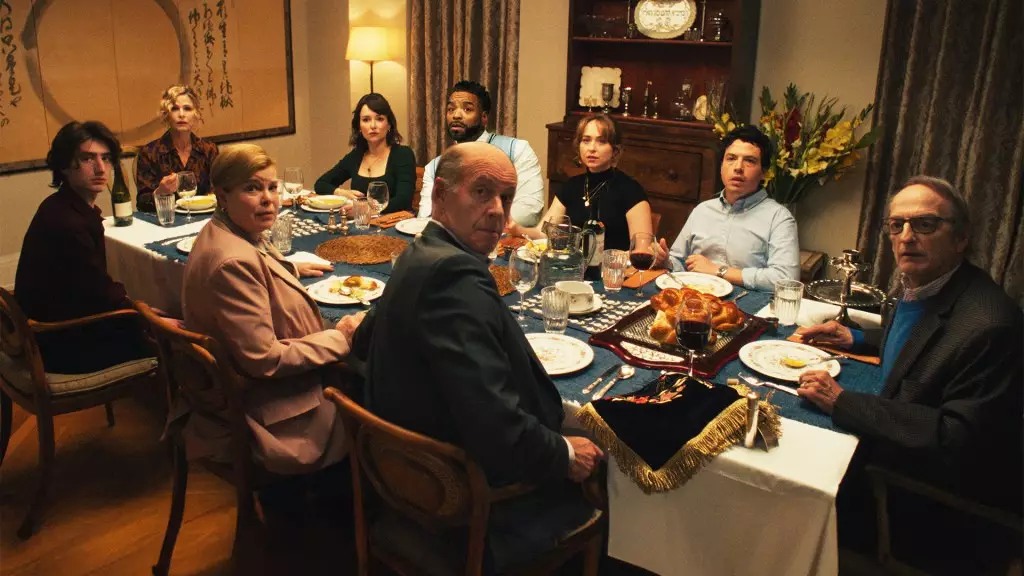In an entertainment landscape increasingly dominated by blockbuster franchises and high-budget productions, the continued success of small, independent films stands as a compelling testament to the resilience and cultural importance of alternative cinema. Despite their limited release strategies, films like *Bad Shabbos* have demonstrated that quality storytelling and authentic engagement can carve out a significant space in theaters, even amidst fierce commercial competition. This phenomenon reveals an essential truth: consumers crave genuine, thought-provoking experiences, and given the right circumstances, independent films can thrive through word of mouth and grassroots support.
Rather than dismissing these films as niche or fleeting, we should recognize their role as vital counterpoints to the homogenized, spectacle-driven mainstream. They often bring fresh narratives, underrepresented voices, and artistic innovation to the forefront—elements that are increasingly scarce in larger productions.
The Myth of Immediate Box Office Success
Heavy hitters often obsess over opening weekend numbers and blockbuster metrics, but a more nuanced view of indie film success emerges when considering their extended theatrical runs and longevity. Films like *Bad Shabbos* exemplify this. Starting discreetly in Florida before expanding to New York and Los Angeles, it has accumulated a steadily increasing audience, thriving on community support and building momentum slowly over weeks. Such a trajectory underscores the importance of patience and strategic distribution, rather than relying solely on initial sales figures to gauge a film’s real cultural impact.
This slow-burning approach amplifies the notion that indie films are more than fleeting novelties—they are resilient entities that can garner dedicated followings. The fact that *Bad Shabbos* continues extended runs in multiple cities demonstrates an organic, grassroots appetite—a challenge to the prevailing narrative that only commercial blockbusters matter.
The Significance of Diverse, Authentic Voices
What makes these indie productions especially noteworthy is their ability to tell varied stories that mainstream outlets often overlook. *Bad Shabbos*, with its themes of interfaith relationships and accidental tragedy, presents a nuanced portrayal of community life and cultural intersectionality. Meanwhile, documentaries like *Secret Mall Apartment* and *Utopia’s Pavements* reveal an inventive spirit that seeks to explore the fringes of American identity and subcultures, often with humor and heartfelt insight.
This diversity isn’t just a matter of storytelling; it’s a reflection of societal complexity and a resistance against cultural erasure. When independent films succeed, they’re not merely adding to box office tallies—they’re fostering community dialogue, challenging stereotypes, and offering nuanced perspectives that resonate deeply with niche audiences. Their endurance proves that there is an audience for authentic, well-crafted narratives that refuse to conform to mainstream expectations.
The Challenge and Opportunity of Distribution
The current climate emphasizes the necessity for independent filmmakers and distributors to adopt innovative, strategic approaches. Limited releases, staggered rollouts, and focus on community theaters help sustain interest in these projects. As Neil Friedman, President of Menemsha Films, notes, word of mouth is the most potent advertisement for a film—a truth that indie cinema has long understood but that the industry still struggles to fully harness.
The success stories of films like *Bad Shabbos* serve as powerful proof that diligent, cautious expansion can yield sustained attention and financial viability. It’s a reminder that the cultural value of a film isn’t solely reflected in immediate gross profits; it’s also measured in audience engagement, critical dialogue, and community resonance. When films are given the space to grow, they can challenge the mono-dimensionality of mainstream cinema and foster a richer, more inclusive cultural environment.
A Call for Support and Recognition
In a broader societal context, indie films embody the democratic spirit of storytelling—accessible, diverse, and capable of inspiring genuine empathy. As these films overcome logistical and financial hurdles, they highlight the importance of supporting independent art as a pillar of cultural vitality. Encouraging continued investment in indie productions not only benefits filmmakers but also cultivates a more nuanced and humane storytelling landscape.
In the end, the persistence of independent films like *Bad Shabbos* reveals that even in a ruthless commercial environment, authentic voices can endure, influence, and ultimately flourish. This resilience is a reflection of societal values that prioritize cultural diversity and artistic integrity—values that demand attention and protection in a time when sweeping homogenization threatens to drown out the voices that challenge the status quo.


Leave a Reply